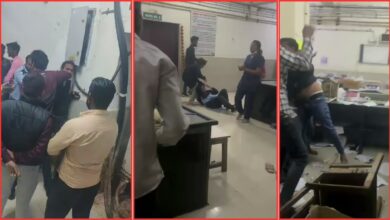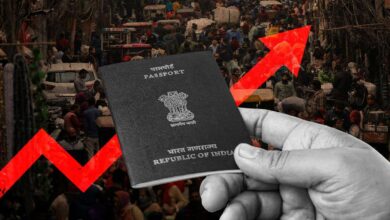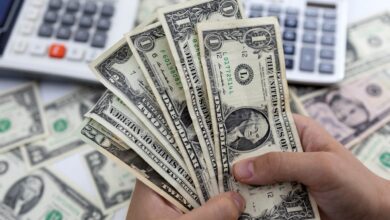Pre-packaged food under GST, 12% tax on hotels with tariff up to Rs 1,000

On Tuesday, the GST Council resolved to eliminate several tax exemptions and raise rates on an even greater number of commodities used frequently by consumers.
It agreed to a plan to tax hotel rooms at a rate of 12 percent and hospital rooms above $5,000 at a rate of 5 percent without an input tax credit. Several packed, labeled foods that are “unbranded” will be subject to a 5% levy.
The GST Council has reportedly authorized additional compliance procedures for high-risk taxpayers, including mandatory biometric verification, the inclusion of power bill data, real-time validation of all bank accounts against a specific set of rulesPAN, and re-tagging.
According to three state finance ministers FE talked with, the Council approved the recommendations of three ministerial panels (GoMs) on rate rationalization, system improvements, and e-way laws on intra-state gold movement “on the whole” following a brief discussion. The Center-state Council also approved the Fitment Committee’s report creation of a margin program for tour operators.
On the first day of its 47th meeting on Tuesday, the Goods and Services Tax (GST) Council is rumored to have approved adding pre-packaged and labeled food items like wheat flour, puffed rice, curd/lassi/buttermilk, and paneer to the GST net; withdrawing the exemption for hotels with rent under Rs 1,000 per day; and correcting the inverted duty structure for a variety of items like edible oils, coal, LED lamps, printing ink, and knives.
On Wednesday, the controversial topics of the continuation of state compensation beyond June 2022 and the 28% GST rate on casinos, internet gambling, and horse racing will be discussed.
The GST Council has reportedly authorized additional compliance procedures for high-risk entitiestaxpayers, including biometric verification, the inclusion of power bill data, real-time validation of all bank accounts against a specific PAN, and geotagging.
Online gaming will also see an increase in tax incidence as the GST is applied to the complete contest entry amount (CEA) rather than just the platform charge as it is now. In India, the online gaming market is worth $30 billion and is expanding quickly.
On Wednesday, the Council will also examine the issue since many states, including Tamil Nadu, Kerala, Chhattisgarh, and certain BJP-ruled states, have demanded an extension of the GST compensation system for two to three years.
The GST Compensation to States Act allows for the delivery of compensation for the first five years of the tax, which ends on Thursday, against an increase of 14% year-over-year above receipts from taxes subsumed in GST.
The Council also decided that states must generate e-way bills to transfer gold and precious stones inside their borders, but the states will choose the threshold.
The interim report of the rate rationalization group of ministers, led by Karnataka Chief Minister Basavaraj S. Bommai, includes the removal of exemptions and rectification of the inverted tariff structure. The group has been granted further time to provide the final report.
The rate on manufacturing services for leather goods and clay bricks would be raised from 5% to 12%, and the GST on LED lamps, ink, knives, blades, power-driven pumps, spoons, forks, and dairy equipment would be increased from 12% to 18%. Currently, hotel rooms that cost less than Rs 1,000 per day are exempt from taxation.
Additionally, it aimed to put pre-packaged foods like puffed rice, wheat flour, curd, and lassi on par with branded foods by imposing a 5% tax on them. Unpackaged and unlabelled food products are now free from tax, but branded and packaged food goods are subject to a 5% GST. Additionally, the panel has recommended that the input tax credit refund for the inverted duty structure for coal and edible oil be withdrawn.
More compliance checks and closer monitoring of high-risk taxpayers are coming to stop income leaks.
Some of the measures that will be covered in this discussion include real-time bank account validation through the integration of the GST system with NPCI, real-time identification of risky behavior of new registrants or applicants using artificial intelligence, placement of information in the back office for the field officer to carry out mandatory physical verification of these taxpayers, and adding electricity bill metadata (CA No.) as a data field during registration by new taxpayers.
The compensation regime, which compensated states for revenue losses below the guaranteed compounded 14 percent rate, came to an end in June after five years of the implementation of the indirect tax system. The GST weighted average growth rate is around 11.6 percent, as opposed to the 14.4 percent revenue-neutral rate at the time of its 2017 implementation. Rate rationalization measures are being considered.
Only five of the 31 states and UTs reported revenue growth in 2021–2022 that was higher than the safeguarded revenue rate for states under GST: Arunachal PradeshManipur, Mizoram, Nagaland, and Sikkim.
The states with the largest revenue gaps between projected revenue and post-settlement gross state GST income in 2021–22 were Pondicherry, Punjab, Uttarakhand, Himachal Pradesh, and Chhattisgarh.
According to the Goods and Services Tax (Reimbursement to States) Act of 2017, states were promised compensation for losses resulting from the introduction of the GST at a compounded rate of 14% starting from the base year 2015–16.
Several items, including printing, writing, or drawing ink, knives with cutting blades, blades, pencil sharpeners, spoons, forks, skimmers, cake-servers, power-driven pumps, deep tube-well turbine pumps, bicycle pumps, machines for cleaning, sorting, or grading eggs and fruit, milking machines and dairy machinery, LED lamps, LED lights, LED drivers, and composite work. To remedy the inverted duty structure, the GST rate on several items would be raised to 18% from 12%.
The GST rate will be increased from 5% to 18% on: air-based atta chakki; machines for cleaning, sorting, or grading seed, grain, or dried leguminous vegetables; machinery used in the milling industry, or for working cereals or dried leguminous vegetables that are not farm type machinery; and wet grinders that use stone as the grinder.
The GST rate on solar water heaters and systems, prepared or finished leather, chamois leather, or composition leather, and composite works contracts supplied to government or local authorities involving earthwork, processing of hides, skins, and leather, manufacture of leather goods or footwear, and manufacture of clay bricks will be raised to 12% from 5%.
The Council also approved a slew of proposals made by a GoM to improve compliance even further, including the inclusion of electricity bill data during new taxpayer registration; real-time validation of all bank accounts against a specific PAN; risk assessment of new applicants using machine learning and mandatory physical verification; and site verification with geo-coding for getting the correct address filed by taxpayers.
edited and proofread by nikita sharma




